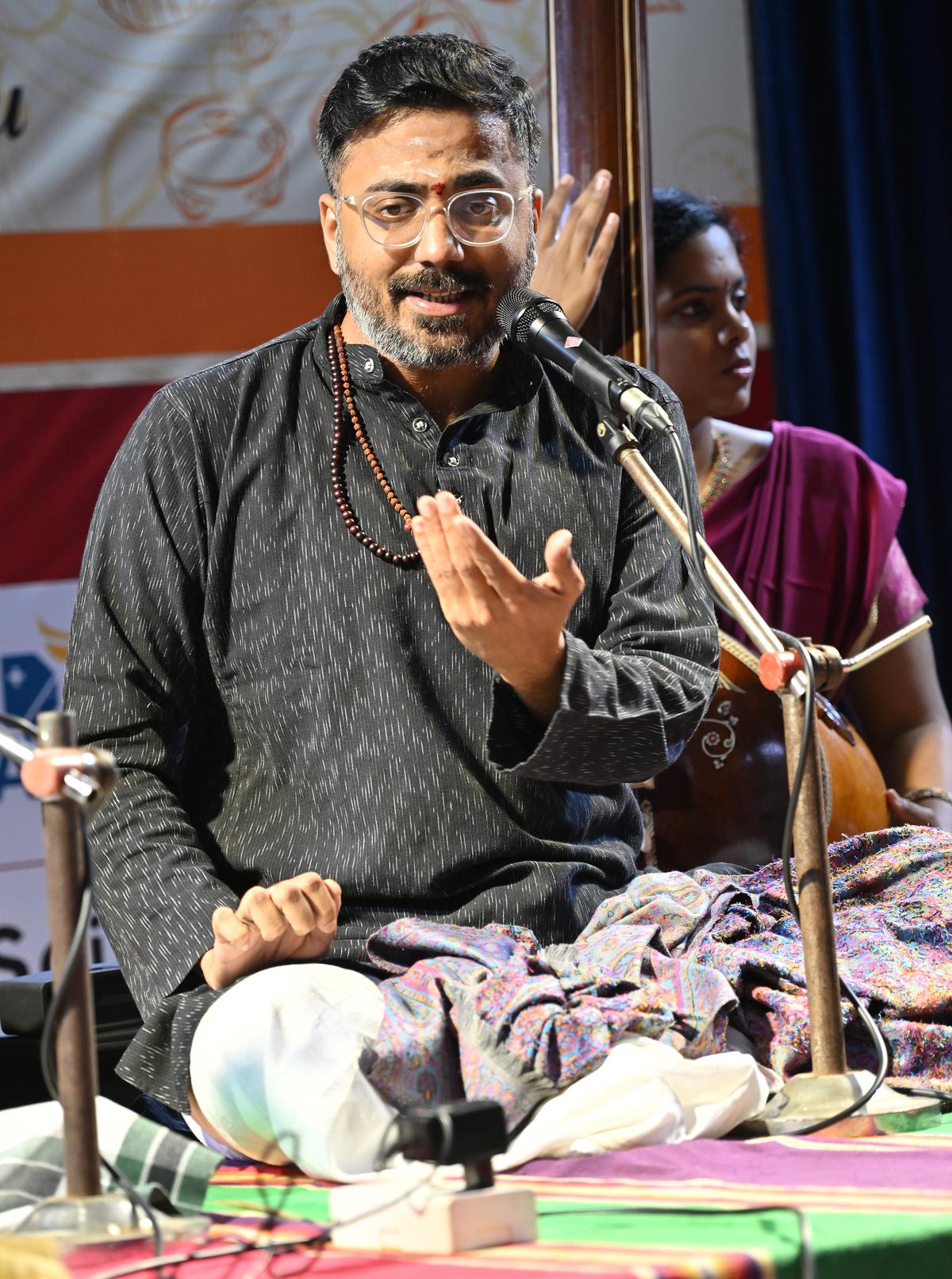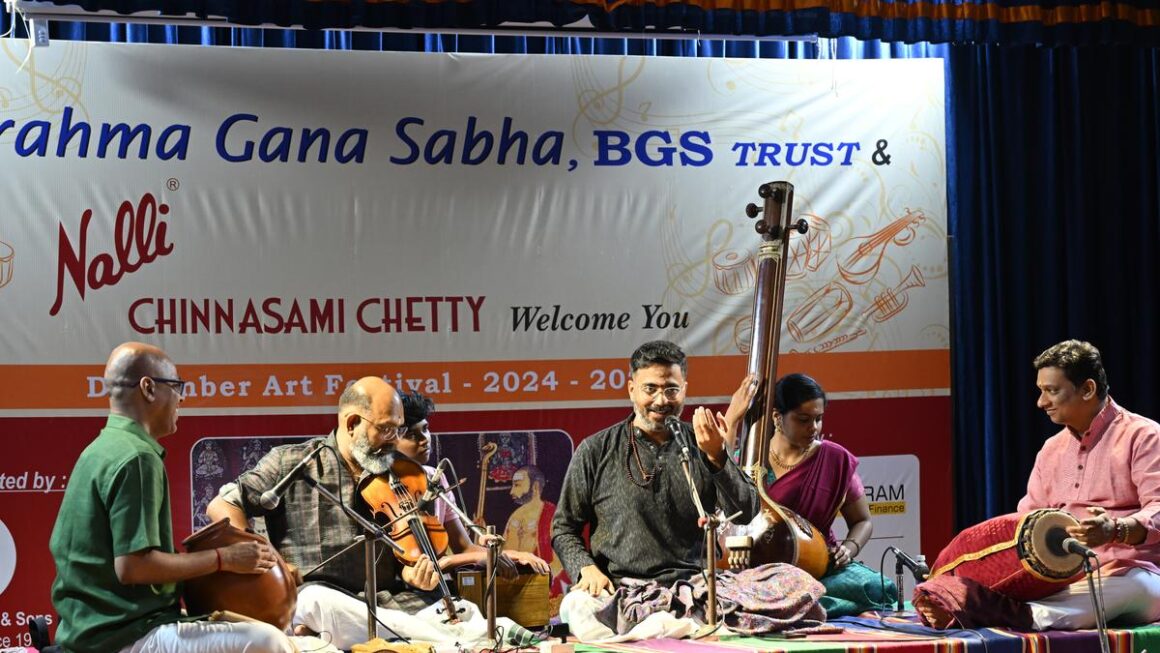
K. Bharat Sundar with VVS Murari, Delhi Sairam and N. Guruprasad
| Photo Credit: M. Srinath
Bharat Sundar is a dependable vocalist, who is constantly on the learning curve and making efforts to frame an impressive concert format.
His commitment to the musical values of the kritis chosen and the ragas handled, his shrewd approach in the swara segments through his vibrant exchanges with the violinist as well as percussion artistes stand testimony to his artistry. He also manages to hold the audience’s attention from start to finish.
Bharat flagged off his recital with ‘Sarasooda’ Saveri varnam and followed it up with ‘Siddhivinayakam’ (Dikshitar) in Chamaram. To the delight of the rasikas, the kriti was appended with a long-winded swarakalpana. VVS Murari on the violin equally responded to that profusion of swaras, and received the approval of the audience.
Begada and Abheri carried lustre due to Bharat’s understanding of the range and melody of the ragas. In the Begada exposition, Bharat added enough emotional feel through his soulful stopovers and extensions in the raga alapana. Ramaswami Sivan’s ‘Kadaikkan vaithennai’ was his selection, and his niraval on the pallavi was poignant.

The session after the tani was a treat since it was marked by subtlety and sobriety
| Photo Credit:
M. Srinath
Surprisingly, without going in for a fast number, he sang ‘Paal ninainthoottum thayinum’, a virutham in Dhanyasi, and followed it up with Gopalakrishna Bharati’s ‘Kanaka sabapathi darisanam’ in sowkhya bhava. Tyagaraja’s lively number in Kuntalavarali ‘Sara sara samare’ filled the gap before Bharat entered the arena for the extensive detailing of Abheri. He presented an interesting chittaswaram for the Kuntalavarali kriti composed by the legend M. Balamuralikrishna. He also explained its subtle nuances.
Bharat’s Abheri raga alapana was an engaging essay touching on the vivacious phrases of the raga’s progress without giving up on its emotional impact at any juncture. The upper region segments also moved with intensity and harmony. Mysore Vasudevachar’s gem ‘Bhajare manasa’ was rendered with great reverence, and his extrapolation on the line ‘Rajakumaran raman’ was a neat exercise. The swarakalpana was immaculate with the finale set on panchamam-centric swaras. In this particular kriti, violinist VVS Murari’s contribution was equally striking. Earlier, Murari’s weighty responses showcased his ingenious power in raga treatises and swara exchanges with Bharat.
Delhi Sairam and Guruprasad, on the mridangam and ghatam, respectively, not only elevated the quality of the concert but also vied with each other at every stage to draw applause from the audience. Their ‘tani avartanam’ was almost analogous to a battlefield of flying ‘sollus’.
The session after the tani was a treat since it was marked by subtlety and sobriety, with ‘Irakkam varaamal’ in Behag by Gopalakrishna Bharati and the profound and philosophical ‘Maname kanamum maravathe’ in Abheri by Papanasam Sivan.
Published – December 31, 2024 01:48 pm IST


Leave a Reply